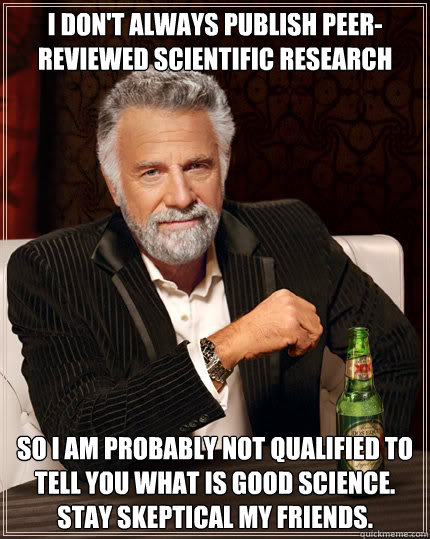For many years, there has been a raging argument between engineers, scientists and the general public. This debate doesn’t center over whether humans and monkeys share a common ancestor. The brouhaha has nothing to do with whether God kicked the universe off in a big bang, or even whether God gives a damn what string theorists have to say. No, this one has long been about the very foundation of modern existence, electricity. In particular, does constant exposure to electrical sources create new and dangerous hazards for human beings?
The human body is, even in the middle of a rather pristine forest, exposed to a deluge of dangerous electromagnetic emanations. Ultraviolet light, penetrating our thick atmosphere and exciting atoms in our skin, can ultimately damage cells if exposure is long enough. Our bodies are constantly attacked by the ionizing electromagnetic fields of high energy particles, the result of cosmic rays smashing into the Earth’s upper atomosphere and showering down upon us. Non-electromagnetic hazards also surround us. Naturally occurring radioisotopes and radioactive atoms, such as Radon or Uranium, occur in the soil and pelt our fragile DNA with neutrons that are capable of rearranging the very atomic nucleus.
But we are protected. Why? We evolved in this environment, and to this environment we are well adapted. Our body has a variety of biological protective mechanisms against ultraviolet light, and our DNA replication process allows for slight errors and mutations to occur harmlessly, usually ending in non-viable mutations that are quickly weeded out of the system. We’ve been here for millions of years, and our predecessors for billions. We are a biological punching bag, well built to withstand the forces of nature.
Needless to say, many a scientist is quite skeptical when we hear people complain about getting a headache while living near power lines. We are skeptical when we hear anecdotes that a certain someone never developed a brain tumor in their life until they bought their Moto. We are skeptical because the kinds of electromagnetic emanations present in common devices are all forms of *non-ionizing* radiation, incapable of doing anything but maybe rattling a few electrons to and fro. The really bad stuff, the stuff the FCC doesn’t allow in a home in any unshielded manner, is *ionizing* radiation, capable of stripping electrons from the outer shells of the atom and changing the chemical properties of molecules.
For many years, there have been all kinds of studies about whether there are true correlations between disease and electrical devices. The serious ones have never pointed to a significant link, which mean that your probability of developing a brain tumor from using a mobile phone is about as likely as you getting one by putting a banana to your ear and having a conversation that way. The latter is, perchance, a great way to see your local sanitarium.
One of my former mentors was once on an investigative panel into the effects of cell phone (back in the days when “cell phone” was a scientifically accurate phrase – “mobile phone” is correct now, since they use digital, and not cellular, technology) use on the human brain. The panel found no effect, but few people in the public apparently wanted to agree with them. It’s another excellent example of how a scientifically starved public responds to such inquiries, breeding only more unscientific contention. Their reaction always made him angry when we talked about such things over lunch.
That said, “there is a new comprehensive study of the effect of electrical appliances (excluding mobile phones)”:http://news.bbc.co.uk/2/hi/health/4402690.stm
that has results. And, of course, even yet another independent study can’t satisfy the people who cling to anecdotes. This one is an excellent example of a misuse of science to sound not only scientific, but right:
But Mike O’Carroll, of the anti-powerline group Revolt, said: “When they say there is no evidence yet of causality, what they should be saying is that the evidence so far doesn’t give adequate support to the theory.”
Ironically, the study doesn’t dispute that the anecdotes contain actual symptoms. It just states that no causal connection between electricity and those symptoms can be found. Mr. O’Carroll’s statement is unfortunately similar in style to that used by detractors of evolution, wherein science is invoked to make their position sound more reasonable. For instance, this logic is revealed as riduculous when applied to the sun: just because there hasn’t been a single day when the sun didn’t rise doesn’t mean that tomorrow it *will* rise. You learn nothing about the sun itself from a position statement like that, because while sounding scientific it is devoid of actual content. A person who rejects a conclusion based on a framework grounded in reason is straying from reason. Perhaps opponents of power lines would better spend their effort trying to identify the actual cause of the reported illness, rather than clinging to blame against a singular claim whose verity is, time and time again, demonstrated to be incorrect.
I would suggest a more reasonable approach. If they are not already being conducted, begin a series of double-blind studies on long-term exposure to conditions such as high-voltage power lines, old pipes or paint in a house, soil chemical content, exposure to UV, etc. Don’t do this by actively exposing people. Rather, find places where people have *chosen* to expose themselves to such things, identify a control population, and conduct the study. Such a reasonable approach to a study ought to at least appeal to those reasonable people who cling to an unverified explanation.
Science is a process, a method, by which fact is separated from hypothesis. Rather than simply attack the conclusion, why not conduct sound experiments to try other hypotheses? Supporters of intelligent design and groups concerned about the health of people in modern technological environments would do well to actually learn to do science, rather than challenge its conclusions by sounding “sciency” without doing actual experimentation.



